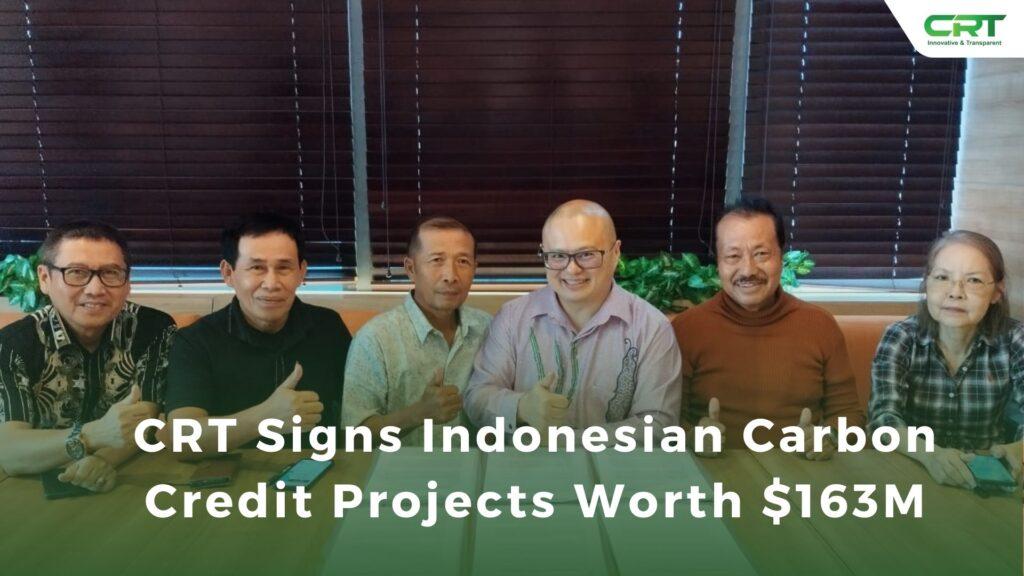Nine projects will generate 4 million carbon credits annually, aiding afforestation and improved forest management efforts.
On April 25, Carbon Registry Thailand (CRT) announced the signing of Master Service and Carbon Credit On-boarding Agreements with the owners of nine pioneering projects in Indonesia. The agreements, formalised in Jakarta, encompass South Papua, North Sulawesi, and South Sumatra projects.
These projects have cleared CRT’s preliminary assessments and are expected to generate 4,081,725 carbon credits annually.

On February 7, 2024, Thailand’s Bank of Agriculture and Agricultural Cooperatives declared their acceptance of Carbon Credits as assets, valuing them at THB 3,000 per credit (approximately USD 80). Using a conservative estimate of 50% of the bank’s asset value, the total worth of carbon credits from these nine projects is projected at an impressive USD 163 million.
Mr. Subandrio, the Chairman of the Tanjung Rasau Cooperative, emphasized the cooperative’s significant efforts in implementing Improved Forest Management practices over the last three years. These efforts included ranger patrols, wildfire prevention programs, anti-logging initiatives, wildlife protection, and rescue operations. Despite limited financial resources from the local community, the cooperative has supported afforestation projects.
Mr. Subandrio voiced optimism that the income generated from Carbon Credits would empower local communities to protect forests and accelerate afforestation efforts. The revenue from Carbon Credits is expected to provide the necessary means for local communities to enhance their conservation endeavours and ensure the long-term sustainability of their natural resources.
Mr. Thanuttzup Phattraprasit, Co-founder of CRT, stressed the organization’s dedication to accurate and transparent carbon credit calculations. The nine projects undertaken by CRT encompass vital areas of nature-based forest carbon credits, concentrating on Afforestation & Reforestation, Improved Forest Management, REDD+ (Reducing Emissions from Deforestation and Forest Degradation), and Avoided Conversion. These initiatives underscore CRT’s commitment to promoting sustainable forestry practices and mitigating climate change through rigorous and transparent quantification of carbon credits.


